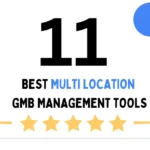Investing in rental property on the Gold Coast can be a lucrative venture, but it comes with its share of responsibilities. One of the most critical elements to understand as a landlord is property management fees. These fees can significantly impact your overall return on investment. This guide aims to help landlords decode the types of property management fees, understand what they cover, and determine how to evaluate the value you receive. From maintenance to lease terminations, including services like end of lease cleaning, effective property management can be the difference between a stress-free investment and a costly oversight.
What Does a Property Manager Do?
A property manager acts as the middleman between landlords and tenants. Their primary role is to ensure your property runs smoothly, generating income while remaining compliant with rental laws. Their tasks include:
- Advertising vacancies and screening tenants
- Managing rental payments and arrears
- Coordinating repairs and maintenance
- Handling legal compliance and dispute resolution
- Conducting property inspections
- Organising services such as vacate cleaning and bond preparation when tenants vacate
What Are the Benefits of Using a Property Manager?
Hiring a property manager offers a wide range of strategic advantages that go beyond just convenience:
- Time Efficiency: Managing a property can be time-consuming, especially when dealing with tenant inquiries, complaints, late payments, and maintenance issues. A property manager takes on these responsibilities, freeing up your time for other pursuits, whether it be expanding your property portfolio or focusing on your career.
- Legal Compliance: Residential tenancy laws are complex and vary by state. Property managers stay abreast of these regulations, ensuring your property adheres to the latest compliance requirements. This reduces the risk of legal issues and ensures smooth handling of leases, disputes, and evictions.
- Higher Retention Rates: Tenants are more likely to stay longer in properties that are well-managed. A responsive and organized property manager improves tenant satisfaction by addressing concerns quickly, ensuring prompt maintenance, and facilitating smooth lease processes. This reduces turnover costs, including those associated with re-letting and cleaning.
- Network of Professionals: Experienced property managers often have a vetted list of professional tradespeople, including plumbers, electricians, handymen, and cleaners. When a tenant vacates, they can quickly organize reliable and cost-effective bond cleaning, helping return the property to top condition and reducing vacancy time.
- Reduced Vacancy Periods: Property managers have the tools and experience to market your property effectively, screen tenants efficiently, and ensure the property is presented in its best light. Their proactive approach ensures faster tenant placement and reduces the amount of time your property remains unoccupied.
These advantages work together to create a more sustainable and profitable investment. By maximizing tenant retention, minimizing legal risk, and ensuring efficient operations, a skilled property manager helps you maintain a consistent cash flow and protect the long-term value of your property.
What Are Property Management Fees?
Property management fees are the costs charged by agencies to handle the operational and administrative aspects of managing your rental property. These fees can be structured in various ways and may include both fixed and variable components. While they represent an ongoing expense, they often pay for themselves in efficiency, reduced vacancies, and legal protection.
Common Types of Property Management Fees
Understanding the types of fees involved is crucial to budgeting effectively and ensuring you receive fair value. Here’s a detailed look at the most common charges:
- Management Fee: This is a recurring charge calculated as a percentage of your rental income, typically between 6% and 12%. It covers the day-to-day operations of managing the property, including rent collection, tenant communication, and general oversight.
- Letting Fee: Applied when a new tenant is secured, this fee usually equals one to two weeks’ rent. It compensates the agency for marketing the property, conducting open homes, screening applications, and preparing lease documentation.
- Lease Renewal Fee: This smaller fee is charged for renewing an existing tenant’s lease agreement. It covers the administrative effort involved and ensures ongoing compliance with updated tenancy laws.
- Advertising/Marketing Fee: This one-off fee covers the cost of promoting your property on rental platforms, professional photography, and signage. Properties with higher visibility tend to lease faster, minimizing vacancy periods.
- Routine Inspection Fees: Property managers conduct regular inspections to monitor property condition and tenant compliance. A set fee is typically charged per inspection, which includes reporting and photographic documentation.
- Maintenance Coordination Fees: When maintenance or repairs are needed, the manager arranges for qualified tradespeople. A coordination fee may be charged, either as a flat rate or a percentage of the job cost, for supervising the process and ensuring quality work.
- End of Lease Cleaning Fees: At the end of a tenancy, the manager may arrange professional cleaning to return the property to its original condition. This fee can be included in the tenant’s bond deduction or managed on behalf of the landlord, especially if quick turnaround for re-letting is required.
- Tribunal Representation Fees: If disputes arise that require formal resolution, such as evictions or claims for damages, this fee covers the manager’s time and expertise in representing your interests at a tribunal or hearing.
Factors Affecting These Fees
- Location: High-demand suburbs often carry higher fees.
- Property Type and Size: Larger properties may require more effort to manage.
- Tenant Turnover: Frequent changes mean more work, inspections, and cleanings.
- Services Included: Full-service agencies may include inspections, legal handling, and even bond or end of lease cleaning in their package.
- Agency Experience and Reputation: Established agencies may charge more but offer better service.
What’s the Average Property Management Fee Per State/Territory?
| State/Territory | Management Fee | Letting Fee |
| Queensland (Gold Coast) | 7% – 10% | 1-2 weeks rent |
| New South Wales | 5% – 8% | 1-2 weeks rent |
| Victoria | 5% – 8% | 1-2 weeks rent |
| South Australia | 9% – 11% | 1-2 weeks rent |
| Western Australia | 8% – 10% | 1-2 weeks rent |
| Tasmania | 8% – 10% | 1-2 weeks rent |
| ACT | 6% – 8% | 1-2 weeks rent |
| Northern Territory | 8% – 10% | 1-2 weeks rent |
READ ALSO: Understanding Real Estate in Lebanon: A Beginner’s Guide
How to Evaluate the Value of Your Property Manager
When choosing a property manager, it’s important to look beyond the percentage fee and evaluate the overall value they bring to your investment. Start by checking how transparent they are with their fee structures—are all costs clearly outlined, or are there hidden extras? Good communication is also key: a manager should be responsive, proactive, and available to address concerns as they arise.
Their ability to quickly handle maintenance issues can mean the difference between a small repair and a major expense. Also consider the range of support services they offer—are they equipped to manage difficult processes like coordinating end of lease cleaning or representing you in tenancy tribunals?
Lastly, take into account their reputation. Online reviews, testimonials, and referrals from other landlords can offer valuable insights into their reliability. A competent property manager not only protects your property but also enhances tenant satisfaction, reduces turnover, and ultimately saves you money in the long run
Considerations if You Want to Manage the Investment Property Yourself
While self-managing your investment property may appear to be a cost-saving strategy, it introduces a range of challenges and responsibilities that can quickly become overwhelming. As a self-managing landlord, you bear full legal responsibility for compliance with tenancy laws and regulations. You must also manage all tenant interactions, which can be time-consuming and stressful. In addition, coordinating maintenance, property inspections, and professional services like cleaning falls squarely on your shoulders.
Unlike property managers who have established networks of vetted tradespeople, you may find yourself relying on less efficient or more expensive options. You’ll also be responsible for drafting lease agreements, handling bond lodgements and refunds, and ensuring that end of lease cleaning is properly conducted to avoid disputes with outgoing tenants. In such cases, engaging a trusted vacate cleaning specialist like Ozclean can make a significant difference by deliveriUnderstanding Real Estate in Lebanon: A Beginner’s Guideng reliable, high-quality cleaning services that meet landlord standards and ensure bond retrieval. The hidden costs in time, risk, and operational stress often outweigh the savings from bypassing a property manager.
Tips for Minimizing Costs Without Sacrificing Quality
- Compare at least 3 agencies’ fee structures
- Negotiate for bundled services
- Choose longer lease terms to reduce letting fees
- Use property managers who offer in-house services (e.g., cleaning, inspections)
- Encourage tenants to leave the property in clean condition or offer to coordinate end of lease cleaning at a discounted rate
Final Thoughts: Maximise Returns with Smart Property Management
Understanding property management fees is crucial to making informed decisions as a landlord. While these costs may seem high upfront, they often translate into reduced vacancies, fewer legal hassles, and better property care. A reliable property manager handles everything from screening tenants to coordinating end of lease cleaning, ultimately protecting your investment and maximizing its return. Take the time to evaluate not just the numbers but the service quality behind them. Your rental property deserves nothing less.
YOU MAY ALSO LIKE: Discover the New Villa Communities in Dubai: Spotlight on Address Hillcrest











